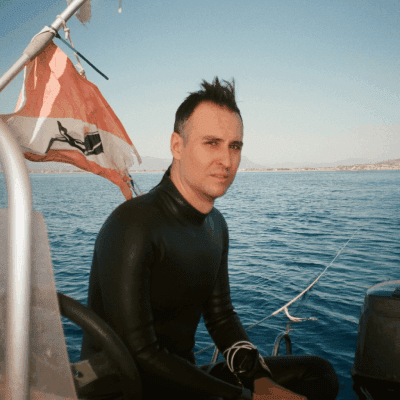Why You should only Freedive with Buddies: plus100.club's safety-first approach
Discover why buddy diving is non-negotiable in freediving and how plus100.club ensures your training partner knows how to properly safety you during every session.

Bartosz Jakubowiak
August 6, 2025
The Golden Rule of Freediving: Never Dive Alone
In freediving, there's one rule that stands above all others: Never Dive Alone. This isn't just a recommendation—it's a fundamental safety principle that can mean the difference between life and death. At plus100.club, we've built our entire platform around connecting with your existing buddies, ensuring that every freediver can train safely with partners they know and trust.
Why Buddy Diving is Non-Negotiable
Freediving is an extreme sport that pushes the human body to its limits. Even experienced freedivers can experience:
- Loss of Motor Control (LMC): Temporary loss of muscle control during ascent
- Blackout: Loss of consciousness due to oxygen deprivation
- Shallow Water Blackout: Particularly dangerous because it can happen unexpectedly
- Equipment Malfunctions: Mask, fins, or other gear issues
- Environmental Hazards: Currents, marine life, or underwater obstacles
Without a properly trained buddy, these situations can quickly become life-threatening. A qualified buddy serves as your safety net, ready to respond immediately if something goes wrong.
How plus100.club Ensures Buddy Safety
We've designed plus100.club with safety as our top priority. Our buddy system is built around connecting with your existing training partners, ensuring that every freediver can train safely with buddies they know and trust:
1. Encouraged Buddy Connections
While buddies are not mandatory, we strongly encourage connecting with the buddies you train with on a daily basis. This helps create accountability and reinforces the safety-first mindset in your training routine.

Empty buddy list - encouraging buddy connections
2. Verified Buddy Connections
Before you can train with someone, they must accept your buddy invitation. This creates a mutual agreement that both parties understand their safety responsibilities. There is no user discovery on the platform—this is a privacy feature that ensures you only connect with people you already know and trust.

Buddy invitation process ensures mutual safety agreement
3. Connected Training Partners
Once connected, you can see your buddies' upcoming training sessions for the next three days—pool or depth sessions that haven't been completed yet. Buddies don't have access to your full training plan, maintaining your privacy while still enabling coordination.

Connected buddies ready for safe training sessions
What Makes a Good Freediving Buddy?
A qualified freediving buddy should possess several key qualities and skills:
Essential Skills
- Proper rescue techniques
- Recognition of LMC and blackout symptoms
- Emergency response procedures
- Clear communication underwater
- Equipment safety checks
Personal Qualities
- Reliability and punctuality
- Calm under pressure
- Good judgment and decision-making
- Physical fitness for rescue scenarios
- Commitment to safety protocols
Training Together: The plus100.club Approach
Our platform facilitates safe training with your existing buddies through several key features:
Shared Training Feed
See your buddies' training activities and coordinate sessions together. This creates transparency and accountability in your training partnerships.

Buddies training together - safety in numbers
Workout Coordination
Plan and preview workouts with your buddies, ensuring everyone understands the session goals and safety requirements before entering the water.

Workout preview ensures everyone is prepared
Safety Protocols Every Buddy Should Know
When training with a buddy, everyone should follow these essential safety protocols:
Pre-Dive Safety Check
Always perform a thorough equipment check and discuss the dive plan with your buddy before entering the water.
Constant Vigilance
The buddy should maintain visual contact with the diver throughout the entire dive, especially during ascent.
Recovery Position
Know how to position an unconscious diver face-up with their airway clear and head above water.
Emergency Response
Be prepared to call emergency services and provide accurate location information if needed.
Ready to Train Safely?
Join plus100.club today and connect with your existing freediving buddies. Remember: your safety is our priority, and your buddy is your lifeline.
Start training safely with your trusted partners and take your freediving training to the next level—safely and responsibly.
Remember: This article is for informational purposes only. Always receive proper freediving training from certified instructors and never attempt freediving without adequate preparation and qualified supervision.
Stay safe,
Bartosz Jakubowiak
Founder, plus100.club